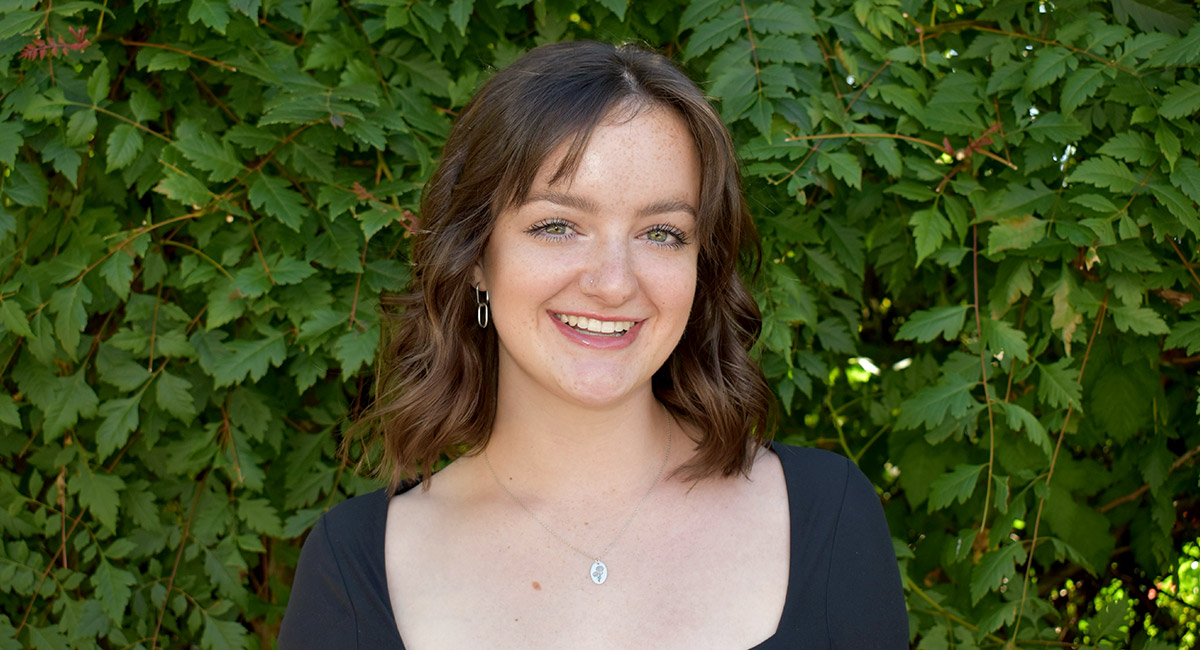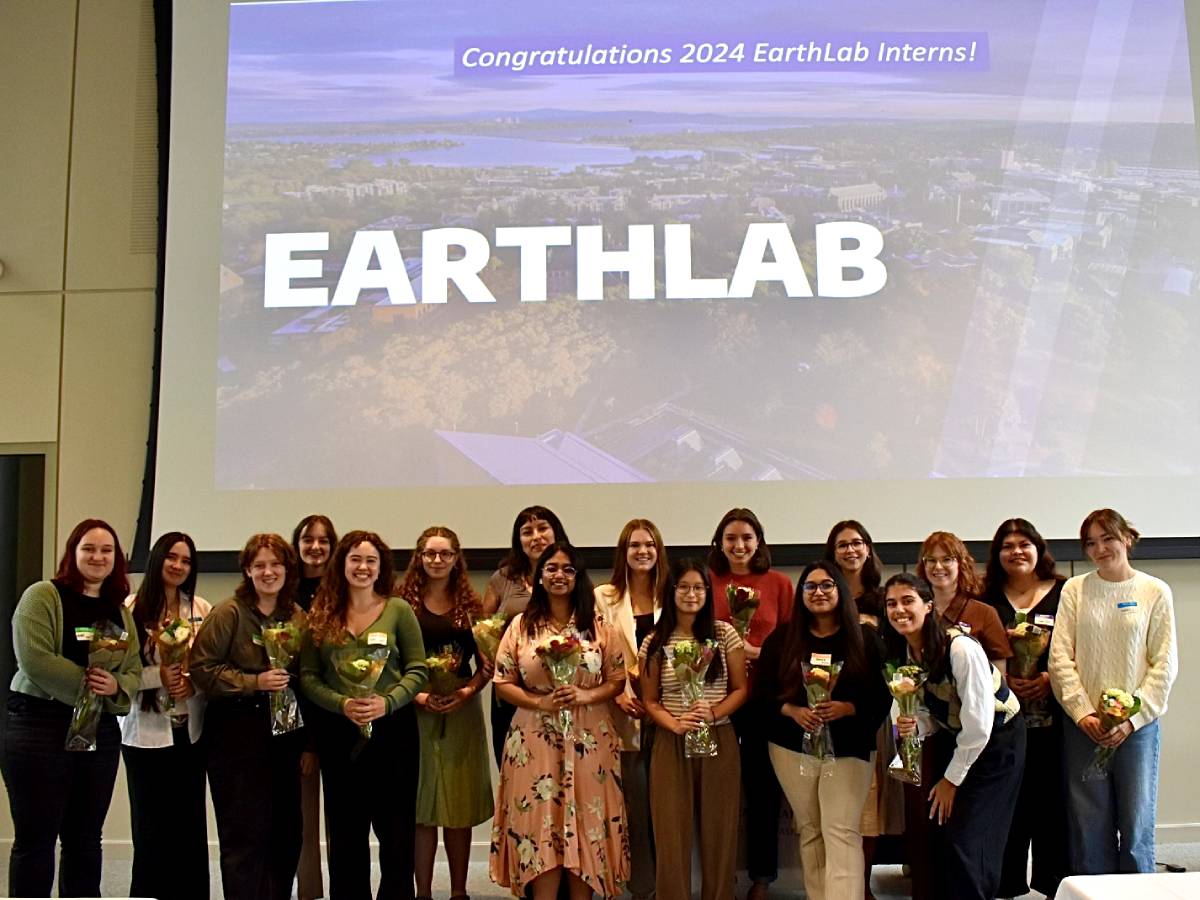
One of the first things Cordy Plymale learned during her internship at the University of Washington’s Center for Health and the Global Environment (CHanGE) is that climate change and human health are interconnected; actions that improve the climate can also improve health.
Plymale, a junior at the University of Washington School of Public Health (UW SPH), is acutely aware of the climate change crisis facing her generation, as they enter adulthood and the workforce. Pew Research cites Gen-Z as the most engaged generation when it comes to talking about the need for climate change action, with two-thirds saying climate change should be a top priority to ensure a sustainable planet for future generations.
Plymale has been turning that preoccupation into practice. Through her internships and studies as a public health-global health major and data science minor, she’s learned that creating timely solutions to climate change and public health problems starts with involving communities who are most impacted by these challenges.
“If you're interested in improving population health and helping people, you have to recognize that there are groups who are disproportionately experiencing these harms and you need to figure out how to work with them to address those issues in a way that is relevant to them,” Plymale said.

CHanGE, where Plymale interned, has a unique focus on researching how climate change impacts the health of vulnerable communities. CHanGE promotes the health benefits of climate action, including reduction of greenhouse gas emissions and preparedness and response to climate change impacts. Plymale’s internship focused on CHanGE’s Climate Health Risk Tool, also known as CHaRT, a heat-health risk mapping and decision support tool. CHaRT helps businesses, health departments, policymakers, and other organizations assess community risk to climate-related environmental events based on three factors: vulnerability, hazard and exposure, and then points them to interventions to consider.
The types of vulnerability indicators CHaRT measures include things like how many pregnant people might reside in a county, a region’s likelihood of having air conditioners, or the number of outdoor workers who are in a region. Having refined data points like these helps decision makers prioritize support during extreme climate events. For instance, more cooling centers could be opened for communities that don’t have access to air conditioning, while shelter or modified work schedules could be prioritized for outdoor workers.
“What’s cool about CHaRT is the focus on vulnerability, because a lot of tools or work being done around climate and health risk do not focus as much on this aspect,” Plymale said. “It highlights the fact that different socioeconomic factors like English literacy, racial and ethnic status, social isolation, or education levels impact how people experience climate hazards and risks. It helps you think about how those harms are not evenly distributed because of different injustices and systemic oppression.”

As an intern, Plymale conducted interviews with organizations that use CHaRT to inform their work around climate and health with communities. These organizations include Public Health – Seattle & King County, Puget Sound Energy, Washington State Department of Health and Americares. These interviews will help the CHanGE team understand how to improve CHaRT for its users.
Plymale also got exposure to Geographic Information System (GIS) mapping, which helps visually display a dataset alongside geographic information. She also got to dive into work with user experience, user interface, and fuzzy logic modeling. She worked with the CHanGE team to explore how artificial intelligence tools can be used to synthesize information and create heat action plans, policy documents which outline what cities and counties should do to protect and promote health during extreme heat events.
Because the internship was through UW’s EarthLab, Plymale was part of a cohort of students doing interdisciplinary internships related to the environment and social justice. The student cohort participated in weekly professional development sessions and networking opportunities to connect them with leaders in the climate and health industries. She also received mentorship from the EarthLab and CHanGE teams, including SPH Professor and CHanGE Director Jeremy Hess, CHanGE Program Manager Marci Burden, and EarthLab Student Programs Lead Lissan Tibebe.

This internship helped influence how Plymale wants to focus her time post-graduation. She plans to get a master’s degree in public health and hopes to pursue work that will use evidence-based policy to improve health for vulnerable populations, especially in the fields of climate and mental health. She’s interested in exploring how community-determined solutions can drive research, and how systemic inequities — like how the wealthiest countries generally contribute the most to climate change but are least likely to feel its impacts compared to low-income countries — can be changed.
Plymale knows that it’s easy to become pessimistic about topics like climate change or public health. Whether it’s through conversations with her peers, reading news articles, or scrolling through social media, there can be strong fatalistic messaging, from stories of crises like pandemics or natural disasters.
Yet Plymale recalls her History and Practice of Public Health class where she watched a viral video of the late Swedish physician and academic Hans Rosling share the progress that has been made across 200 countries over 200 years in public health. Human lifespan and wealth have increased drastically, and while disparities remain and should be addressed, public health has been making an important difference.
“We need to move forward with urgency and take climate and health issues seriously, yet it’s also important to recognize that there has been progress made,” Plymale said. “When we work together and unite across interdisciplinary sectors, we can make positive change.”

Watch Cordy Plymale's speech at the 2024 UW Recognition Gala, where she shares her experience as an EarthLab intern working with CHanGE.